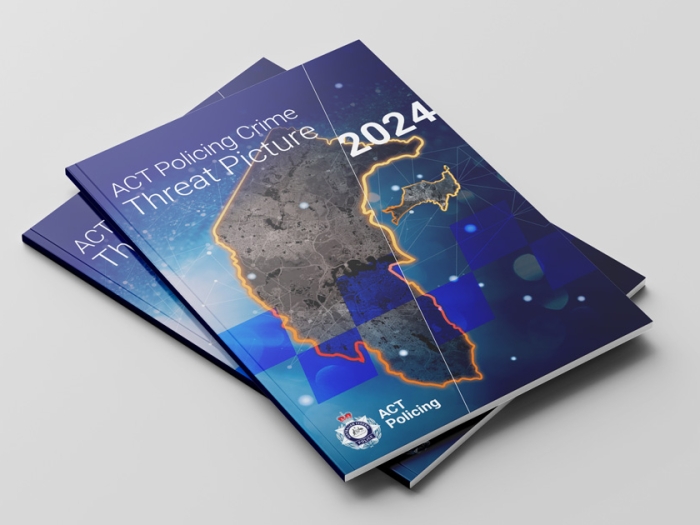Protection of livelihoods
Protecting Australia’s collective economic and societal interests from criminal threats by deterring malicious actors and making Australia a hostile environment for criminals to operate in, is a cornerstone of the AFP’s mission.
Dismantling and tackling organised crime syndicates
There are thousands of transnational and serious organised crime (TSOC) entities impacting Australia, operating both onshore and offshore. TSOC groups are a national security threat undermining Australia’s economy, social security, financial systems, and the health and wellbeing of our citizens. Australia’s drug market is heavily driven by TSOC groups importing illicit drugs. Domestic drug production forms a small part of the overall picture, with criminals using improvised materials and methods in clandestine drug laboratories to meet local demand.
Psychoactive substances are becoming more prominent with dangerous consequences for our society, as manufacturers use new and different mixes of chemicals which are not yet subject to regulation to stay ahead of the law.
Despite significant efforts of law enforcement to seize methamphetamine domestically and offshore, consumption levels in Australia have reached the highest level recorded since 2019 20, with Australians consuming approximately 10.6 tonnes in 2022-23.
Organised crime groups use legitimate businesses across all sectors of our society to launder money to facilitate a broad range of crime. In doing so, criminals evade contributing to Australia’s economic prosperity and undermine domestic and international trust in, and the stability of, our financial institutions.
Technological advancements, including in AI and encrypted communications systems, are strengthening criminals’ capabilities, and making it more difficult for law enforcement to intercept communications.
The AFP will continue building and maintaining strong partnerships with domestic and international law enforcement partners to counter TSOC entities that seek to target Australia from overseas. We will invest in and adopt a technology based approach to disrupt the new and emerging threats that arise from technological advancements.
Rising threat from technology and malicious actors
Malicious cyber activities perpetrated against Australia are becoming more frequent, more sophisticated and are having a more adverse impact on our national and economic interests than ever before. Cybercrime has direct and indirect implications for society, causing financial loss, disruption to essential services, reputational damage for individuals and businesses, and distrust in the digital economy.
The expanded use of cloud services, transnational service providers and identity and location masking technologies, particularly among offshore cybercriminals, presents complex challenges for the AFP. Offshore criminals are exploiting governance structures around data sovereignty and using offshore information technology infrastructure in jurisdictions hostile to law enforcement, to evade policing efforts.
Programs and software that are commercially available are reducing the technical knowledge required of criminals, making it easier to commit crimes. Generative AI models, like FraudGPT and WormGPT, provide cybercrime-as-a-service tools which assist cybercriminals in developing and deploying a wide variety of methodologies.
The use of end-to-end encryption, deepfake and AI technologies by criminals is progressing faster than legislative reform can effectively address. The AFP is a key stakeholder and source of advice for government on the criminal and policing law reform and policing powers required to more effectively counter cybercriminals. The AFP will continue to engage with its partners overseas to counter and prosecute cybercrime perpetrated offshore against Australia and its interests.
Increasing challenges from elaborate financial deceptions and corrupt conduct
Safeguarding Australians and Commonwealth revenue streams from malicious fraudulent activity and corruption remains a key focus for the AFP. An increasingly complex financial environment requires enhanced AFP capability and policing response.
Monetary loss and identity deception is growing due to the advancement of AI and biometrics. Technology is making it easier for criminals to conduct illegal activities and significantly more difficult for law enforcement to identify and counter scams and fraud.
Tax evasion, particularly through misreporting and account manipulation, is significantly impacting the Australian economy. Criminal syndicates often use trusted insiders and non-traditional facilitators, such as health professionals, accountants and business consultants for Australian Government programs and payments, to make it more difficult for law enforcement to identify and counter attempts to defraud the Commonwealth.
The increasing popularity of cryptocurrency continues to create new avenues for fraud, including the ability for criminals to hide illegal financial transactions. We are increasingly seeing criminals exploit and influence for-profit and not-for-profit entities for private gain.
As criminals continue to exploit technological advancements for their own advantage, the threat of financial deception and corrupt conduct in Australia will continue to grow and become more complex. The AFP will continue to assist other Commonwealth entities to harden their programs against the evolving threat of fraud and corruption.





